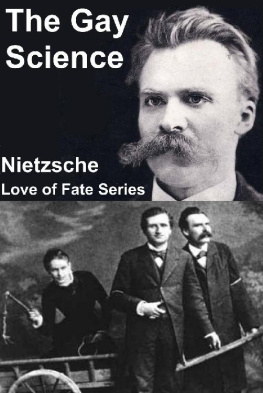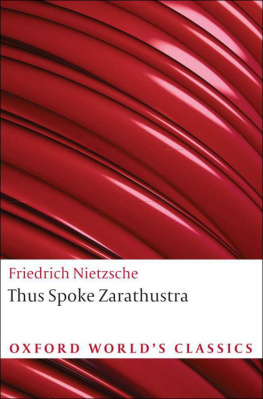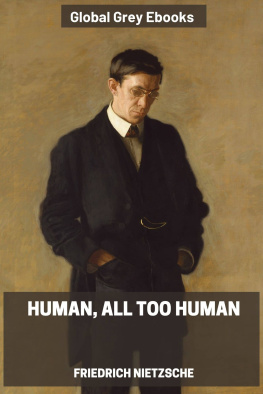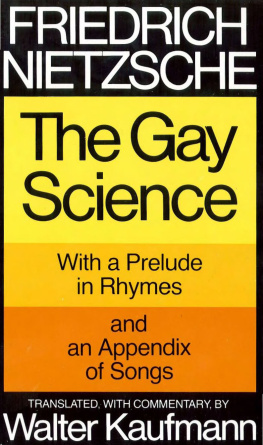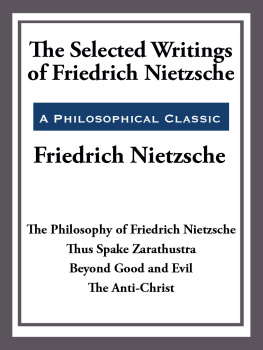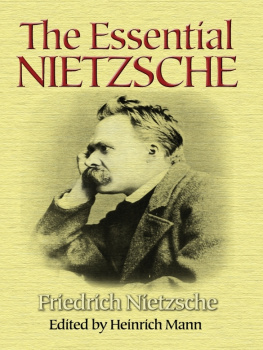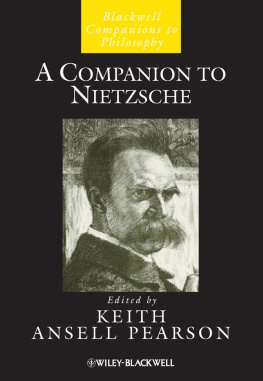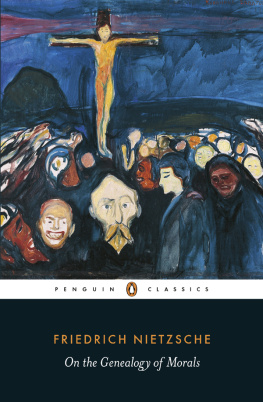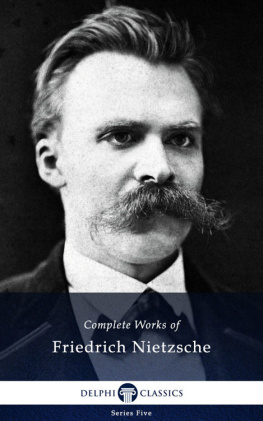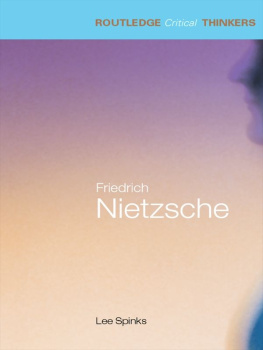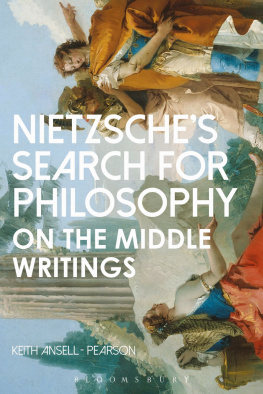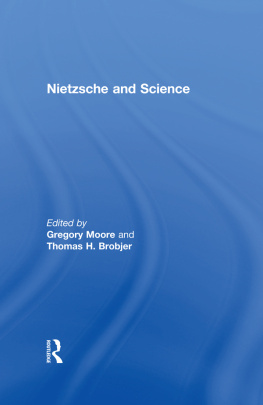ON TRUTH
AND UNTRUTH
Selected Writings
Friedrich Nietzsche
Translated and Edited by
TAYLOR CARMAN

Contents
On the Pathos of Truth (1872)
Is fame really just the most delicious morsel of our self-love? It has, after all, attached itself to the most uncommon men, as an ambition, and in turn to their most uncommon moments. These are moments of sudden illumination in which man stretches out a commanding arm, as if creating a world, light shining forth and spreading out around him. He is then filled with the deeply gratifying certainty that what enraptured and exalted him into the farthest regions, the height of this one sensation, can never be denied to posterity; in the eternal necessity of this rare illumination for all those to come man sees the necessity of his fame. Far into the future, mankind needs him, and just as that moment of illumination is the embodiment and epitome of his innermost essence, so, too, he believes himself, as the man of this moment, to be immortal, dismissing all others as dross, rot, vanity, brutishness, or pleonasm, leaving them to perish.
We view all disappearance and demise with discontent, often with astonishment, as if we experienced in it something at bottom impossible. We are disturbed when a tall tree breaks, and a crumbling mountain aggrieves us. Every New Years Eve, we feel the mystery of the contradiction of being and becoming. What offends moral man above all, though, is that an instant of supreme universal perfection should vanish without a trace, like a falling star, leaving nothing to posterity. His imperative reads instead: whatever once served more beautifully to propagate the concept man must continue to exist forever. That all the great moments form a chain; that, like mountain peaks, they unite mankind across the millennia; that the greatest things from a bygone age are also great for me; and that the prescient faith of the lust for fame will be fulfilledthat is the idea at the very foundation of culture.
The terrible struggle of culture is ignited by the demand that what is great should be eternal; for everything else that continues to live cries out, No! The customary, the small, the common fills every nook and cranny of the world like an oppressive atmosphere we are all condemned to breathe, smoldering around what is great; hindering, choking, suffocating, deadening, smothering, dimming, deluding, it throws itself onto the road the great must travel on the way to immortality. The road goes through human brains! Through the brains of pitiful, short-lived creatures who, given over to their cramped needs, rise again and again to the same afflictions and, with great effort, manage to fend off ruin for a short time. They want to live, to live a bitat any price. Who would discern among them that arduous torch race that only the great survive? And yet time and again some awaken who, seeing what is great, feel inspired, as if human life were a glorious thing, and as if the most beautiful fruit of this bitter plant were the assurance that someone once walked proudly and stoically through this existence, another with deep thoughts, a third with mercy, but all of them leaving behind a single lesson: that he who lives life most beautifully is he who does not hold it in great esteem. But while the common man regards this bit of existence with such morbid seriousness, those on their journey to immortality knew how to respond to it with an Olympian laugh, or at least with sublime disdain; often they went to their graves with ironyfor what did they have to bury?
The boldest knights among those addicted to glory, those who believe they will find their coat of arms hanging on a constellation, must be sought among the philosophers. They address their efforts not to a public, to the agitation of the masses and the cheering applause of their contemporaries; it is in their nature to travel the road alone. Their talent is the rarest and, in a certain respect, the most unnatural in nature, shutting itself off from and hostile even to kindred talents. The wall of their self-sufficiency must be hard as diamond not to be shattered and destroyed, for everything is on the move against them, man and nature. Their journey to immortality is more arduous and impeded than any other, and yet no one can be as sure as the philosopher about reaching his goal, since he knows not where to stand, if not on the wings of all ages; for a disregard of the present and the momentary is of the nature of philosophical contemplation. He has the truth; let the wheel of time roll where it will, it can never escape the truth.
It is important to realize that such men did indeed once live. One could never imagine as a mere idle possibility the pride of the wise Heraclitus, He had no need of men, not even for his knowledge; he cared not at all for what one could learn from them, nor what other sages before him were at pains to discover. I searched out myself, he said, using a word that refers to the fathoming of an oracle: as if he and no one else were the true embodiment and achievement of the Delphic maxim Know yourself.
What he heard in this oracle, however, he took to be immortal wisdom, eternally worthy of interpretation, in the same sense in which the prophetic utterances of the sibyl are immortal. It is sufficient for the most distant generations; may they interpret it simply as the saying of an oracle, just as he himself, like a Delphic god, neither speaks nor conceals. Thats something for singers and poets, and for those before him who were known as wise menlet them gulp down the most delicious morsels of their self-love; the stuff is too common for him. His fame matters to men, not to him; his self-love is the love of truthand this very truth tells him that the immortality of man needs him, not that he needs the immortality of the man Heraclitus.
Truth! Rapturous delusion of a god! What does truth matter to human beings!
And what was the Heraclitean truth"!
And where has it gone? A vanished dream, wiped from the faces of men, along with other dreams!It was not the first!
Of all that we with such proud metaphors call world history and truth and fame, a heartless demon might have nothing to say but this:
In some remote corner of the sprawling universe, twinkling among the countless solar systems, there was once a star on which some clever animals invented knowledge. It was the most arrogant, most mendacious minute in world history, but it was only a minute. After nature caught its breath a little, the star froze, and the clever animals had to die. And it was time, too: for although they boasted of how much they had come to know, in the end they realized they had gotten it all wrong. They died and in dying cursed truth. Such was the species of doubting animal that had invented knowledge.
This would be mans fate were he nothing more than a thinking animal; truth would drive him to despair and annihilation, truth eternally damned to be untruth. All that is proper to man, however, is faith in the attainable truth, in the ever approaching, confidence-inspiring illusion. Does he not in fact live by constant deception? Doesnt nature conceal virtually everything from him, even what is nearest, for example, his own body, of which he has only a spurious consciousness"? He is locked up in this consciousness, and nature has thrown away the key. O fateful curiosity of the philosopher, who longs to peer out just once through a crack in the chamber of consciousnessperhaps then he gains an intimation that man rests in the indifference of his ignorance on the greedy, the insatiable, the disgusting, the merciless, the murderous, suspended in dreams on the back of a tiger.
Next page

